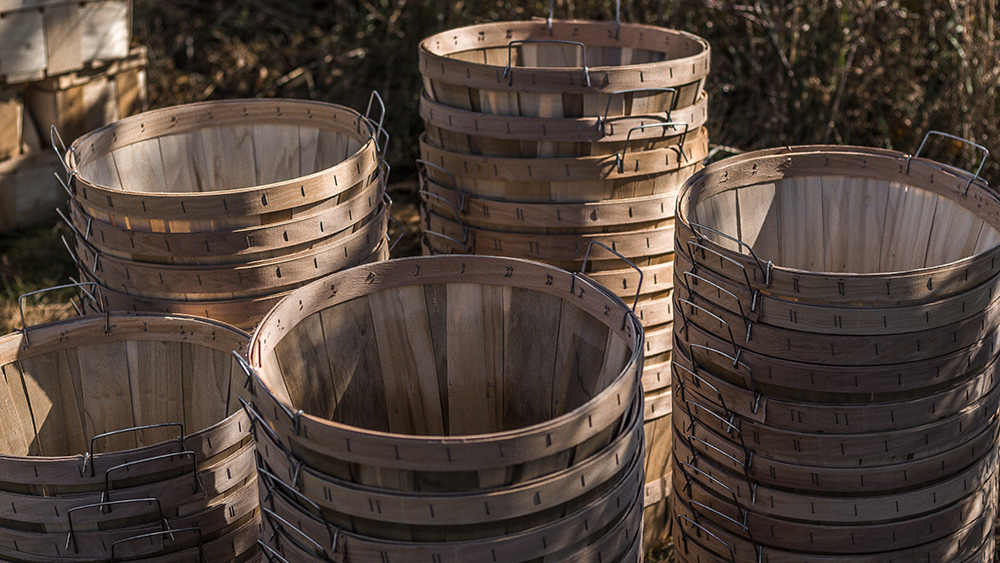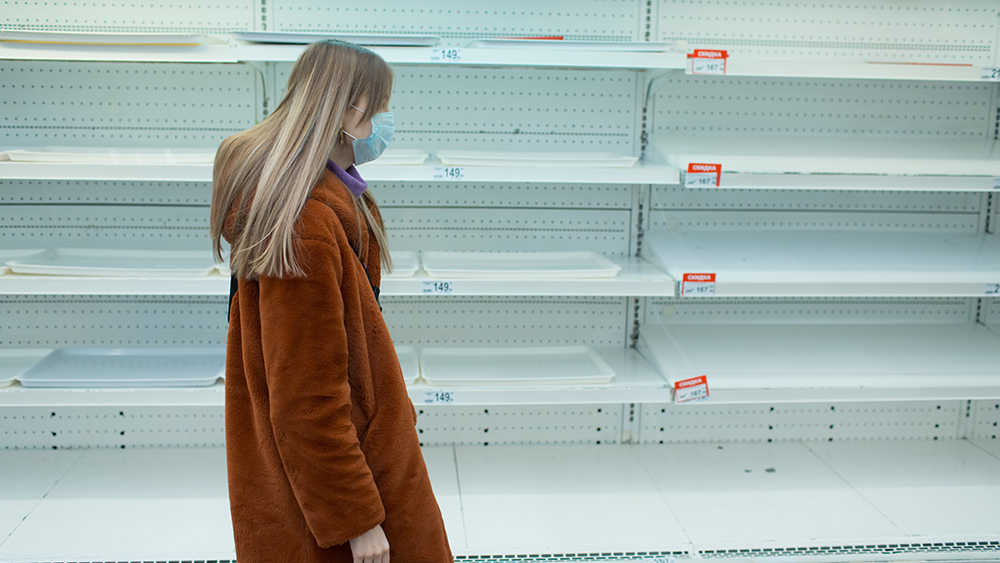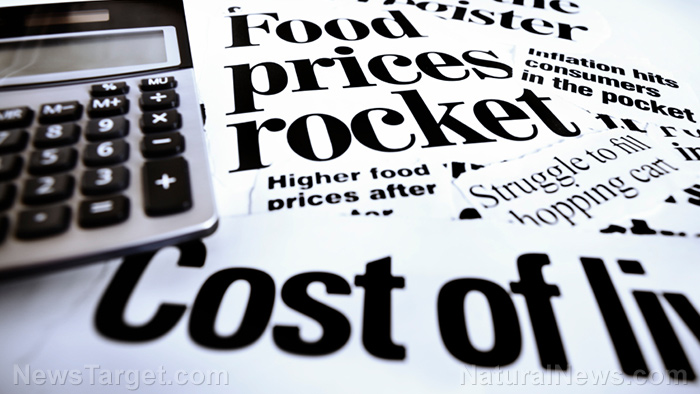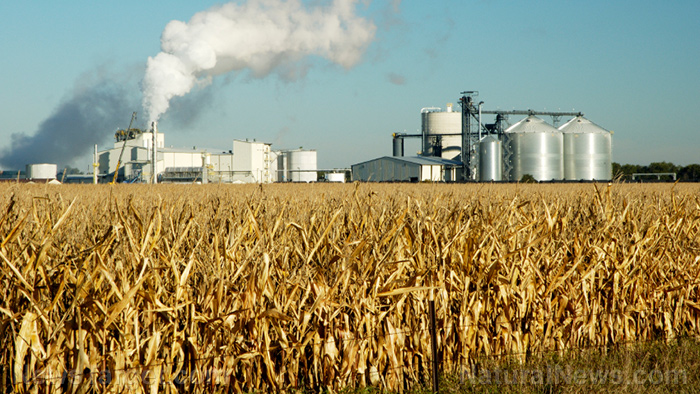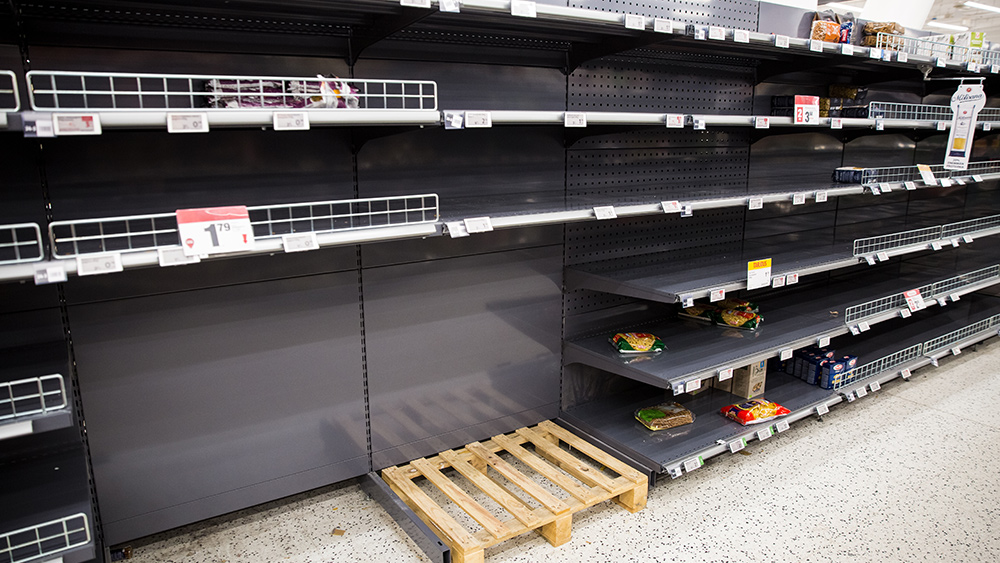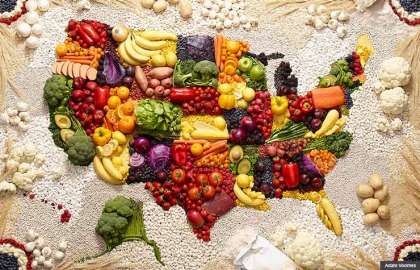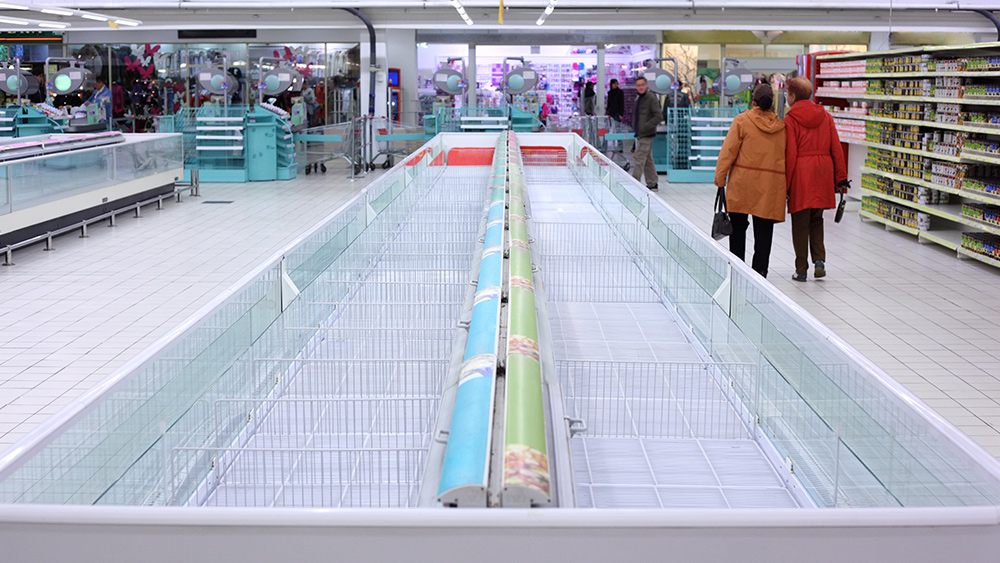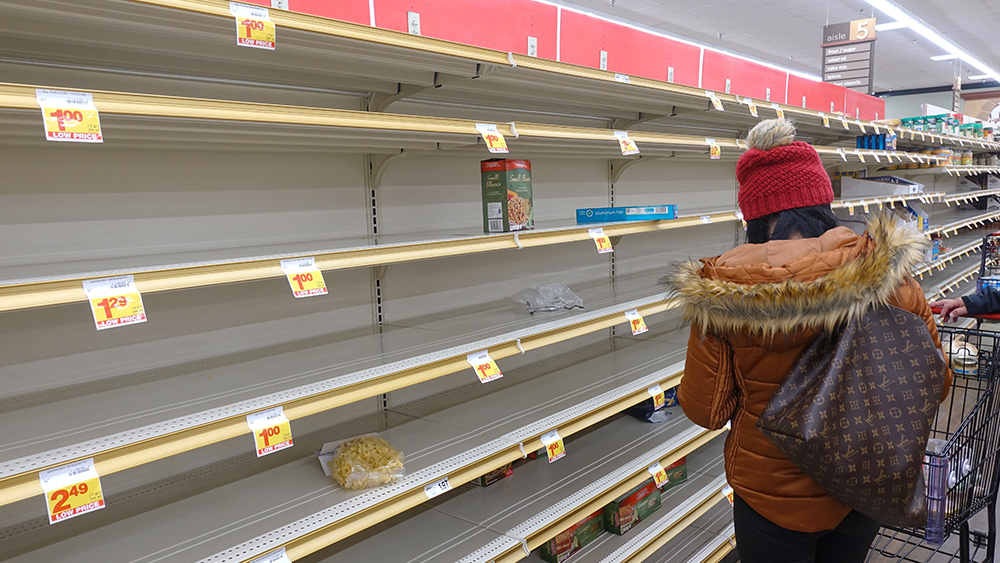Food pantries strongly affected by supply chain crisis, unable to provide food to thousands of people
11/05/2021 / By Arsenio Toledo

Food pantries all over the country are finding it increasingly difficult to provide services to people in need within their respective areas amid the supply chain crisis.
According to the American Farm Bureau Association, many families will likely have to pay around five percent more for most of the ingredients and other food items they will need to make a proper feast for Thanksgiving.
This food price inflation means many families will be unable to purchase everything their family members need. This will inevitably force many to turn to food pantries for aid.
But the rapid inflation is also putting food pantries at risk of not being able to provide potentially thousands of people good meals. (Related: Supply chain crisis threatening global economy expected to continue into the holidays.)
In Madison, Wisconsin, the River Food Pantry is preparing to provide 1,200 households in the city with ingredients to make meals for Thanksgiving. This is on top of the 2,500 Thanksgiving meals the pantry is preparing to deliver to go.
“Food is a big part of celebration and we want to be able to support families,” said River Food Pantry Director of Operations Helen Osborn-Senatus.
But Osborn-Senatus said the pantry is not immune to the supply chain crisis. “I just found out that some items we had planned to come in this week may not be coming until the end of next week, or closer to Thanksgiving,” she said.
To make up for the shortages, Osborn-Senatus said the food pantry is asking for city residents to donate. “Whether it’s pie filling or stuffing mix or cornbread mix – things like that,” she said.
The Badger Prairie Needs Network, another food pantry on the other side of Madison, is also worried about how much food it can get during the supply chain crisis.
“We may be short on things like bread and ingredients like some of the staple items, but it sounds to me like turkeys are going to be okay and we have pies,” said Executive Director Maggie Gleason.
Gleason said her food pantry will be lucky to prepare 400 Thanksgiving baskets this year. “It’s nice for our guests to know they can come here and get all the fixings for a Thanksgiving meal and all they have to worry about is being able to spend the day with their family and friends,” she said.
Inflation, shortages and delivery delays affecting operations of food pantries
Other food pantries and charities all over the country are experiencing similar problems like the ones faced by River Food Pantry and Badger Prairie Needs Network.
In Nevada, the Catholic Charities of Northern Nevada (CCNN) helps a local network of 31 food pantries feed residents all over the region. For Thanksgiving, it has a Feeding Families program.
CEO Marie Baxter noted that this program has recently seen an influx of people register for free food.
“We’re already starting to see increases in our numbers,” she said. “Registrations filling up quickly. There are a lot of people reaching out for help.”
CCNN has been preparing for its Feeding Families program since July, when it first started ordering ingredients and food items for its Thanksgiving holiday baskets. But many of the items the charity is expecting are still delayed.
“Not everything is here in the building,” said Baxter, who is still hopeful that the charity will have everything it needs by the time it begins distributing the baskets.
Baxter said she had seen a 10 to 15 percent increase in the cost of many food items. As a result, CCNN had to cut back on how much food it can provide to its network of food pantries.
In Tallahassee, Florida, food price increases and other aspects of the supply chain crisis have forced the Good News Outreach food pantry to see both a decrease in donations and an increase in demand.
“We are seeing a big uptick,” said manager Rebecca Howard. “Gas prices have gone up so much, and food prices have gone up. There is no disposable income. So they’re turning to food pantries.”
Good News Outreach went from giving out 280 bags of food in July to 430 in September. Howard said the pantry is still able to provide food to anyone who needs it, but it has become a difficult struggle.
“We’ve run out of food to the point that I looked at the shelves and went, ‘Oh my God, we’re desperate,'” she said.
The Community Kitchen in Keene, New Hampshire, is experiencing similar problems. Executive Director Phoebe Bray said the pantry is experiencing a shortage of many food items.
“We are quite literally scrambling to get enough food – non-perishables and fresh produce. This year is proving to be more troublesome than last year, food-wise. It’s the problem that the supermarkets are running into – the warehouses have food but they don’t have enough delivery drivers,” wrote Bray in an email to local media outlet Sentinel Source.
In Langdon, about 20 miles north of Keene, the Fall Mountain Food Shelf needs to slash the number of meals it delivers for Thanksgiving by about half.
In the past few years, it was able to serve between 800 to 900 people. Now, Fall Mountain Food Shelf Director Mary Lou Huffling said they will be lucky to provide 500 meals. “We’re just so thankful we can do it at all,” she said.
Learn more about how the supply chain crisis is negatively affecting food banks and other private charities by reading the latest articles at FoodCollapse.com.
Sources include:
Submit a correction >>
Tagged Under:
bubble, collapse, economic collapse, economic crisis, economy, food costs, food pantry, food prices, food supply, inflation, market crash, shortages, supply chain, supply chain crisis, Thanksgiving
This article may contain statements that reflect the opinion of the author
RECENT NEWS & ARTICLES
FoodRiots.news is a fact-based public education website published by FoodRiots.news Features, LLC.
All content copyright © 2021 by FoodRiots.news Features, LLC.
Contact Us with Tips or Corrections
All trademarks, registered trademarks and servicemarks mentioned on this site are the property of their respective owners.


